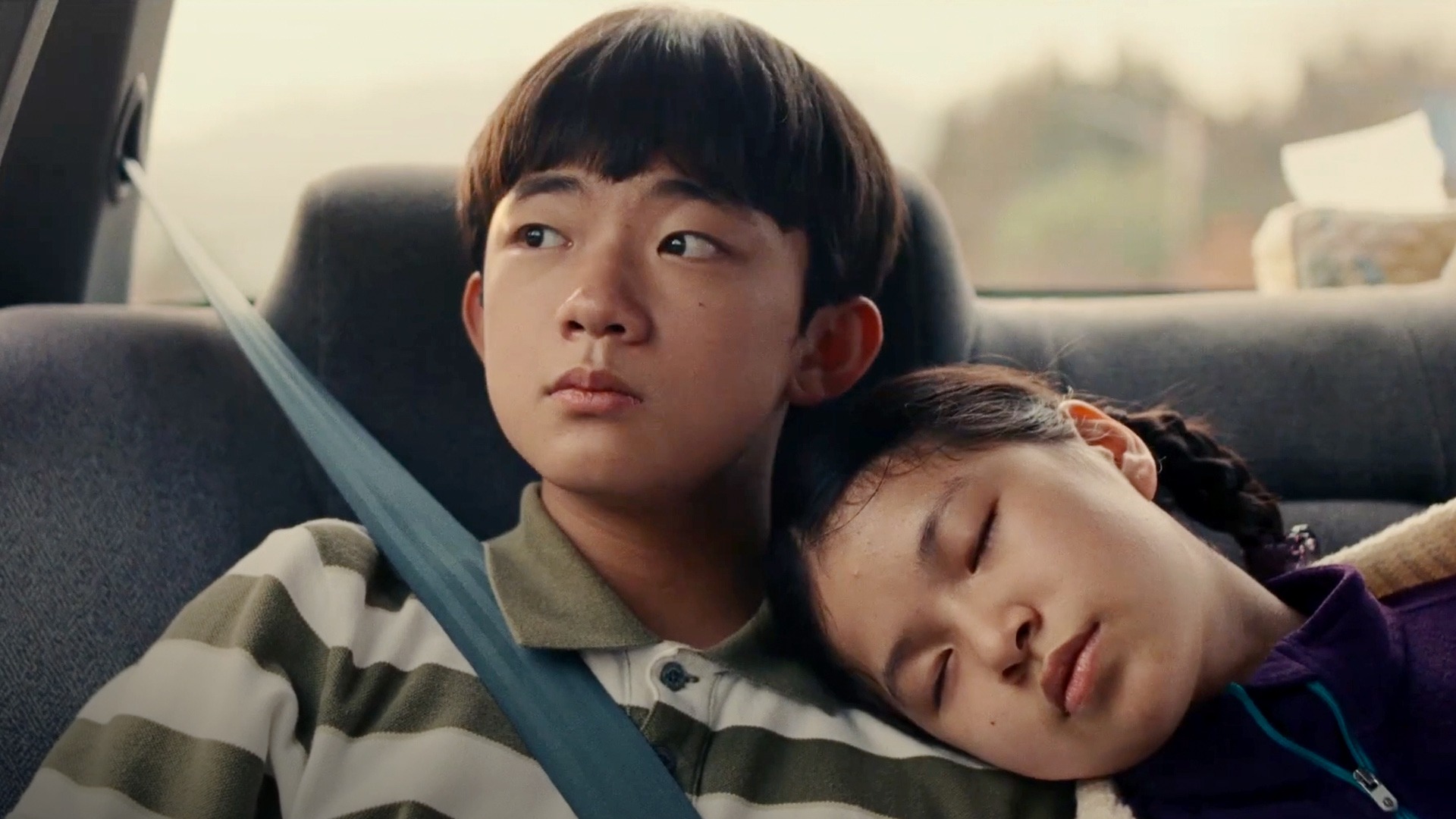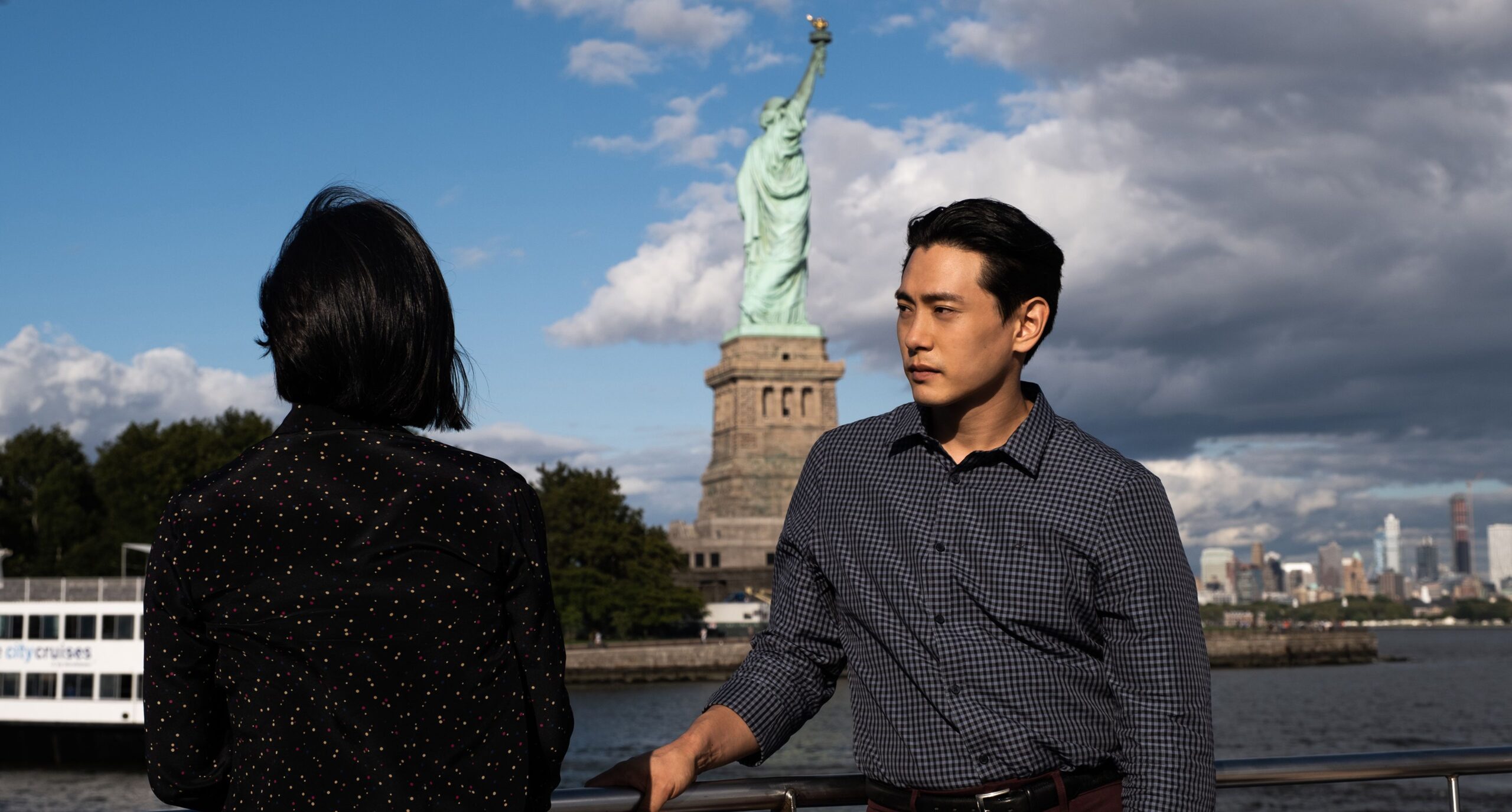PAST LIVES. What could have been [REVIEW]

The already iconic A24 studio can certainly be considered a leading player in the alternative cinema market. The American producer is responsible for a series of productions that have made a significant impact in recent years on festival and repertoire screens – recent examples include Aftersun and Everything Everywhere All at Once. One of A24’s distinguishing features is enabling ambitious projects by young, often debutant creators, who, under the wings of East Coast producers, can grow into global stars, as seen with Ari Aster, for example. Last year, another debut under the auspices of A24 is showcased at Sundance and Berlinale – Past Lives by Celine Song, now nominated for an Oscar.
The director is a Korean-born screenwriter and playwright who emigrated to Canada with her parents in childhood and currently resides in New York. In addition to off-Broadway performances, she also has experience working on the Amazon Wheel of Time screenwriting team. Similar to Charlotte Wells, her cinematic debut brings a very personal, directly inspired by her own biography, story suspended between Seoul and New York. Song openly admits that the inspiration for writing the script was a joint outing to a bar with her husband and a former Korean friend, and the story reflects her personal experiences and feelings. However, unlike Aftersun, Past Lives offers a clear and filter-free narrative that seems to reflect the author’s intimate experiences towards a more universal portrayal of migration and transnationality.

Celine Song at the Berlinale 2023 The main character in Song’s film is Nora, a Korean expatriate and playwright, and the core of the story is her relationship with Hae Sung – a boy with whom she shared a proto-romantic closeness during school days before she moved to Canada at the age of 12. We follow the story of these two over the years, in three chapters evenly spaced 12 years apart. First, the two friends separated abruptly by emigration, then we observe the rekindling of contact from a distance, and finally, a physical meeting. Step by step, we see how their relationship changes due to independent twists of fate, and we also witness the suppressed emotions associated with it. The story is observed from two perspectives – both from Nora’s point of view and that of her long-lost, unfulfilled love, providing a practically complete picture of the characters’ relationship.
The film opens with a scene dramatizing the moment that inspired Song to write Past Lives. From the perspective of an outsider couple, we see three people – an immersed Asian-looking man and woman in conversation and their melancholic companion with a Caucasian appearance. From off-screen, the duo, playfully wondering, speculates about the relationship between these people and the nature of their meeting in this New York bar. The actual narrative begins when the woman sitting in the middle looks directly into the camera, and the director, through editing, initiates a story reaching back 24 years. We will see this scene again, this time from the perspective of the participants in the conversation, in the final act, now knowing the full context of the situation. It’s a simple but very clever technique that elegantly ties together Past Lives and sets it up as a slightly melancholic reflection on what could have been.

Despite spanning decades, the story is very compact and clear, maintained in a gentle key of independent drama with a small cast, likely echoing Song’s theatrical experience. Perhaps this is why the director seems not to fully trust the visual storytelling and consistently leads the exposition through dialogues, explaining both specific events and the characters’ emotions. This literalness seems unnecessary in many places, especially since the best and most poignant scenes in Past Lives are those where the characters refrain from words. If Song had allowed herself to trust the visual aspect more, she could probably have risen above the pleasing but somewhat conservative formula of independent social drama. I also have similar doubts about the justification of rejecting an openly subjective perspective – perhaps the emotional potential of Past Lives could have developed better with a clear immersion solely in the point of view of the author’s alter ego, Nora, and only her unobjectivized perception of the friend found after years.
Excessive literalness is ultimately what causes Song’s debut to yield to films like Aftersun by Wells or The Farewell by Lulu Wang, in which directors transform their intimate experiences into cinematic stories. Past Lives appears relatively conventional in this context, although Song’s skill in building psychological depth in an ostensibly banal story cannot be denied. The title “Past Lives” refers to the Korean view of the attraction and eternal connection of souls over successive, hundreds-counted incarnations. In this reflective tale of an emotion that could never unfold, leaving only memories and regret for unrealized possibilities, this theme resonates with particular force. In a sentimental and positively nuanced sense, the film signals Song’s distinct writing talent, skillfully using intimate details to tell something universal, in which every person can find a piece of themselves. It might even be a pleasant change – in contrast to all the cinematically elaborate but narratively stumbling films, Past Lives is, first and foremost, a beautifully written piece. So, let’s be moved and keep our fingers crossed for the development of the author, who proves to have a knack for cinema as well.

